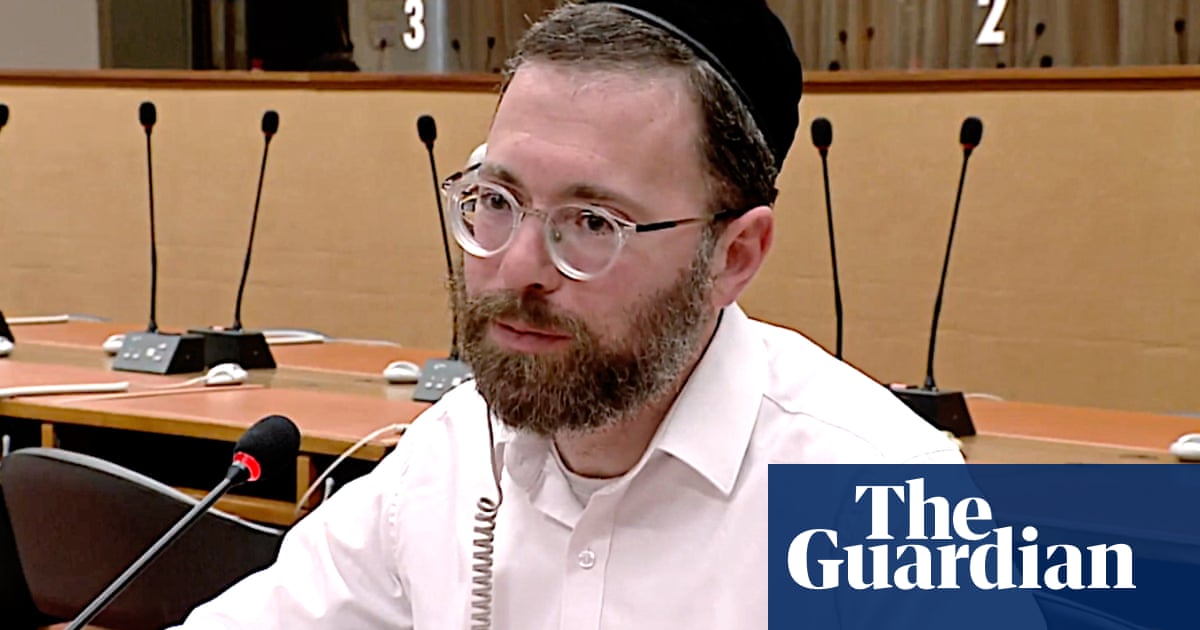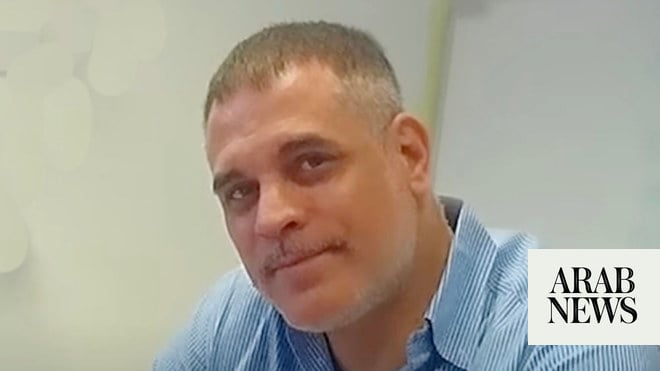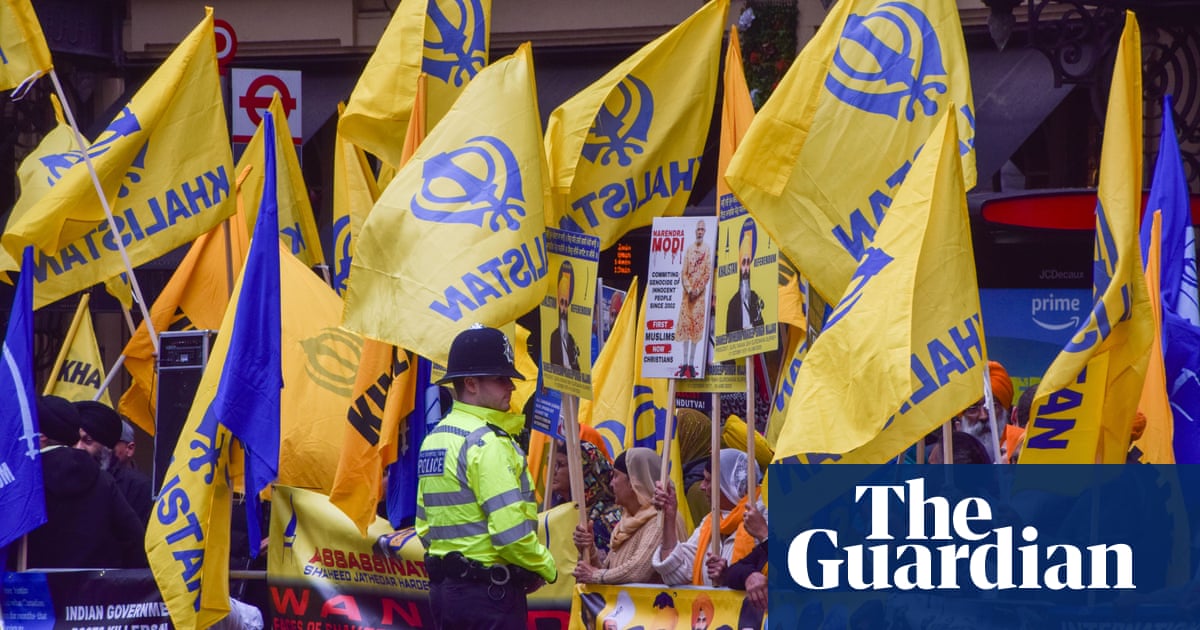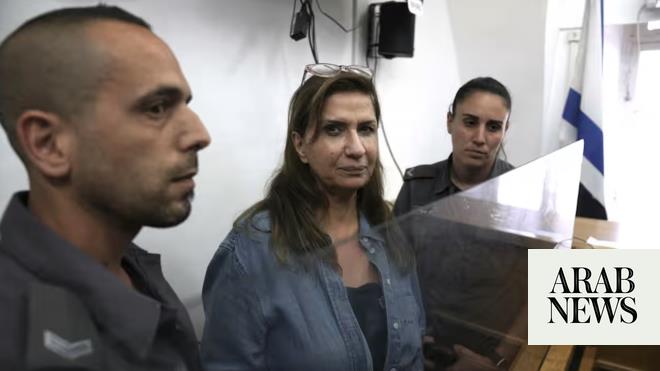
Two activists from a Jewish-Arab peace movement were recently detained in Israel for putting up posters with a message that the police deemed to be offensive. The message was: “Jews and Arabs, we will get through this together.”
The activists, members of Standing Together, had their posters confiscated, as well as T-shirts printed with peace slogans in Hebrew and Arabic.
It was not an isolated incident. Across Israel, people are being detained, fired from their jobs, and even attacked for expressing sentiments interpreted by some as showing sympathy for Hamas after the group’s murderous attack on 7 October. The definition of pro-Hamas is often widened to include expressions of sympathy for the plight of Palestinian children trapped in Gaza, or calls for peace, especially if expressed in both Arabic and Hebrew.
Last week, after 15 years of service at a Petah Tikva hospital, its director of the cardiac intensive care unit was suspended from his position. Abed Samara’s apparent offence was his profile picture on social media – a dove carrying an olive twig and a green flag emblazoned with the shahada, the Muslim declaration of faith: “There is no God but Allah and Muhammad is his prophet.” He had adopted the picture last year, long before the Hamas attack, but it was nevertheless seen as somehow voicing support for the outrage.
Last week, Samara also posted a quote attributed to the prophet Muhammad, about how Muslims would have to answer for their actions on the day of judgment, which the doctor told Haaretz was aimed at “Muslim leaders and clerics who are not doing enough to stop the bloodshed”.
Nonetheless, hospital authorities deemed it to be supportive of the enemy.
The crackdown is directed primarily by the government of Benjamin Netanyahu. Since the attack, police have been given wide discretion to determine what applies as support for terrorism. They no longer have to refer back to the state prosecutors, which the human rights lawyer Michael Sfard said removes an important level of legal protection for individual free speech.
“We’re seeing a tsunami of police investigations,” Sfard said. “People who are targeted go through a very frightening experience and even if it ends with no indictments, it’s still horrendous.
“There is a wave of silencing of any type of, not only criticism, but also just compassion.”
Protests in sympathy with Gaza have been dispersed with force and Israel’s chief of police, Yaakov Shabtai, said last week: “Anyone who wants to identify with Gaza is welcome. I will put them on buses now that are headed there and I will help him get there.”
At the beginning of last week, Israel’s attorney general’s office also announced that it had instructed universities and colleges to forward cases to the police of students who had posted “words of praise for terrorism”.
In the wake of the attorney general’s instructions, there has been an apparent purge in Israeli universities. The legal rights group Adalah has reported that about 50 Palestinian students have been summoned to disciplinary committees about their social media posts and some have been suspended from their studies.
Intimidation of both Jewish and Arab Israelis with dissident views has also come from faceless individuals and groups, stirring up hate online.
In one notable incident, the ultra-orthodox leftwing journalist Israel Frey posted a video saying Kaddish (the Jewish prayer for the dead) for the victims of the Hamas slaughter and Palestinian civilians under fire in Gaza.
Soon afterwards, an anonymous user of the Telegram messaging platform published his address, which was shared widely by rightwing groups, and a mob turned up outside, lobbing fireworks at his windows, forcing him to flee with his family. He is now in hiding.
Alon-Lee Green, the national director of Standing Together, said Frey’s was just one example of widespread intimidation of Israelis who oppose government policy and collective punishment of Palestinians.
“A lot of people are being laid off from work because of different political views or just their identity,” Green said. “Every day we get hundreds of phone calls to our hotline specifically from people who are losing their jobs. A few dozen of them could be said to have expressed support for Hamas, but the overwhelming majority have posted calls to stop the war, or saying things like: there are also children in Gaza.
“It’s a disgrace because we need these doctors, psychologists, members of arts faculty, who are part of our society and suffering from trauma,” he added. “It’s also dangerous because it can lead to a new front inside with the danger of intercommunal violence.”
Doxing of personal details and intimidation against peace activists is a widespread phenomenon, said Ori Kol, co-founder of FakeReporter, a group dedicated to combating the spread of misinformation and hate speech online.
“What you have basically in Israel is an atmosphere of fear, which is powered by unknown actors online,” Kol said. “It’s pretty random who they target. They leak out details of a well-known lefty film director, his phone number and ID number, and the next minute they go after a Palestinian nurse in the north of Israel, who might have uploaded some story with pictures from Gaza.”
Achiya Schatz, executive director of FakeReporter, said: “Something that is very troubling for us is knowing we are going to be dealing with another battlefield, an inner battle between citizens, here and on the West Bank.”
It is, Schatz added, “an enormous risk for society and for the national security of Israel”.












